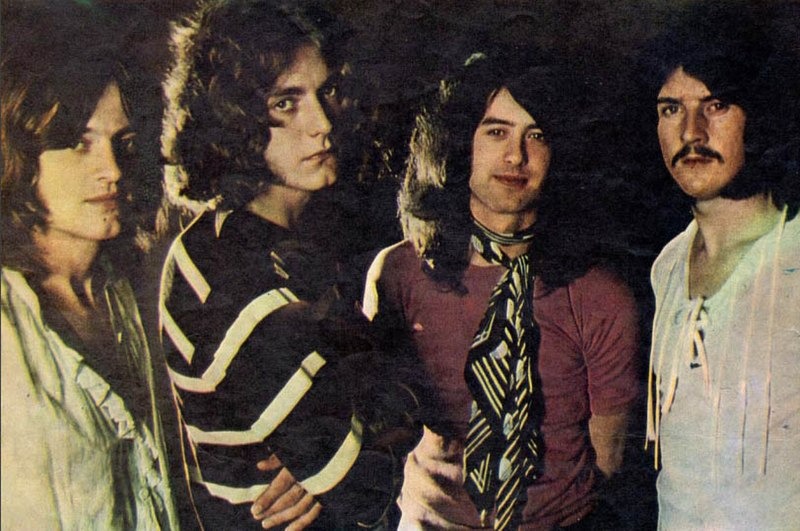Nobody had ever heard anything like Led Zeppelin before the late 1960s. Despite sharing the same blues-infused roots as groups such as The Yardbirds, the band’s live performances were a sonic force due to the way each member interacted with the others, unknowingly connecting the hard rock and heavy metal genres. The band never claimed to be the most innovative band in the world, even if their magic may not have been easy to find at the time.
The band’s obsession with writing catchy riffs from the start was only surpassed by the number of catchy riffs they plagiarized. Jimmy Page and Robert Plant were well-known for attempting to play vintage blues classics or transforming earlier songs into their own insane riffs throughout their collaboration. For example, on their second album, they turned the traditional “Killing Floor” into “The Lemon Song.”
However, the band had become a rock and roll tour de force by the time they released their fourth album. With little to no marketing to promote the album, Zeppelin’s self-titled album which featured songs like “Rock and Roll” and their masterpiece “Stairway to Heaven” became their seminal work.
The album’s closing track, “When the Levee Breaks,” did have a hint of the blues, but John Paul Jones saved one of the group’s most intricate riffs for the song “Black Dog.” The song’s structure is different from any typical rock and roll song, with the vocals filling in the silences between the tracks and the riff taking center stage for the majority of the song. The verses include a cascading time signature.
Green’s unconventional approach to traditional blues music helped Fleetwood Mac become a rock institution years before Stevie Nicks and Lindsey Buckingham were added. Green entered the scene concurrently with Zeppelin. Page believed that the song “Oh Well” could have unintentionally influenced his peers to write their hallmark song.
Speaking on the song’s vocal pauses, Page remembered, “I guess if you want to say that we leaned on something as far as the structure of it, you remember ‘Oh Well’ by Fleetwood Mac, where it stops and there’s the vocal? So there you are…now they’ll sue us.” Even with Page’s unintentional appropriation, the band manages to pass it off as their own thanks to their deft timing.
The band changes tempo as the riff progresses, sounding nearly out of rhythm with the drums before abruptly returning to the regular arrangement. Many other hard rock bands would employ a similar tactic even after Zeppelin, most notably Soundgarden in the verses of their song “Spoonman.” Even though Led Zeppelin has a reputation for occasionally stealing music, only seasoned rock stars can successfully separate “Black Dog” from “Oh Well.”
